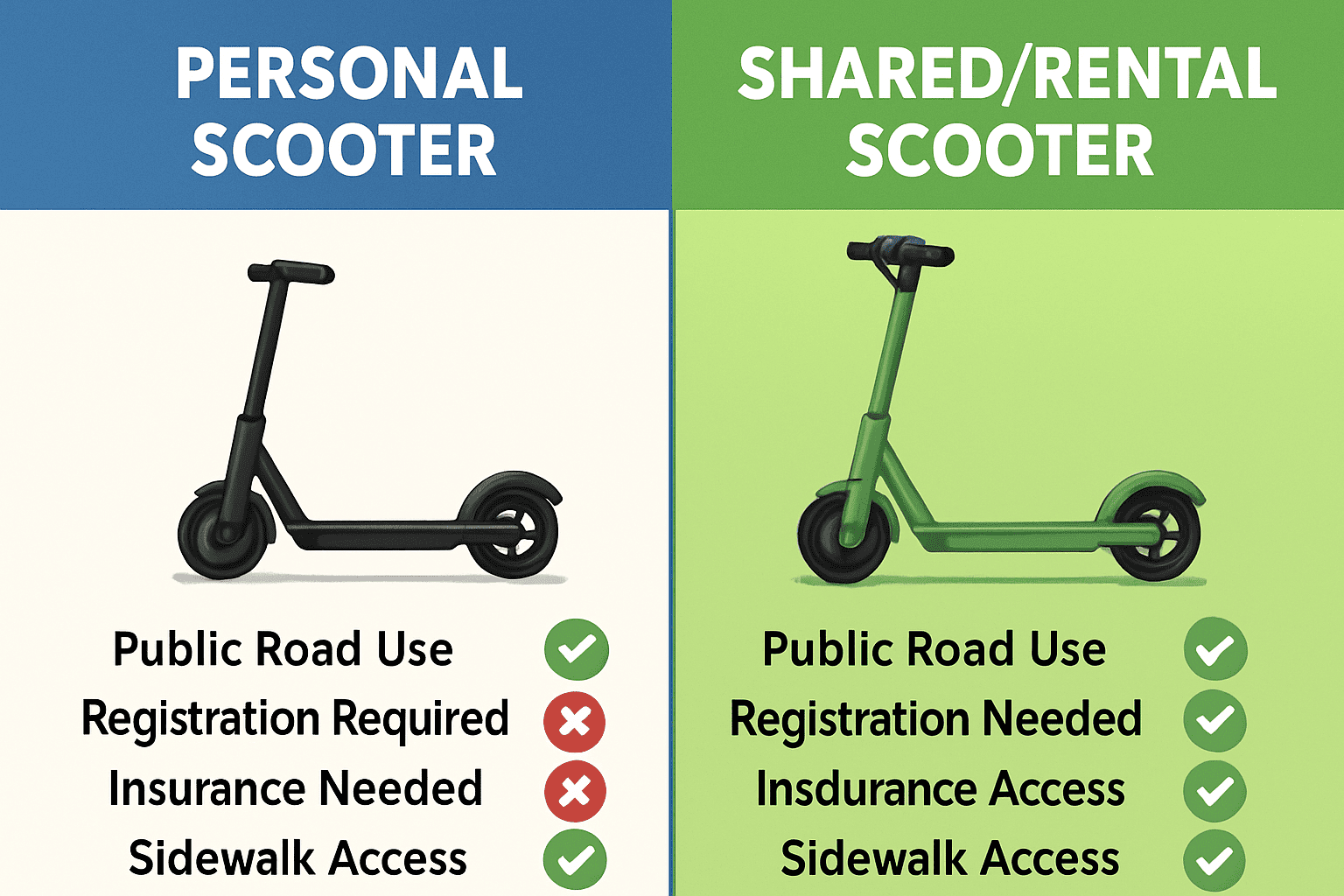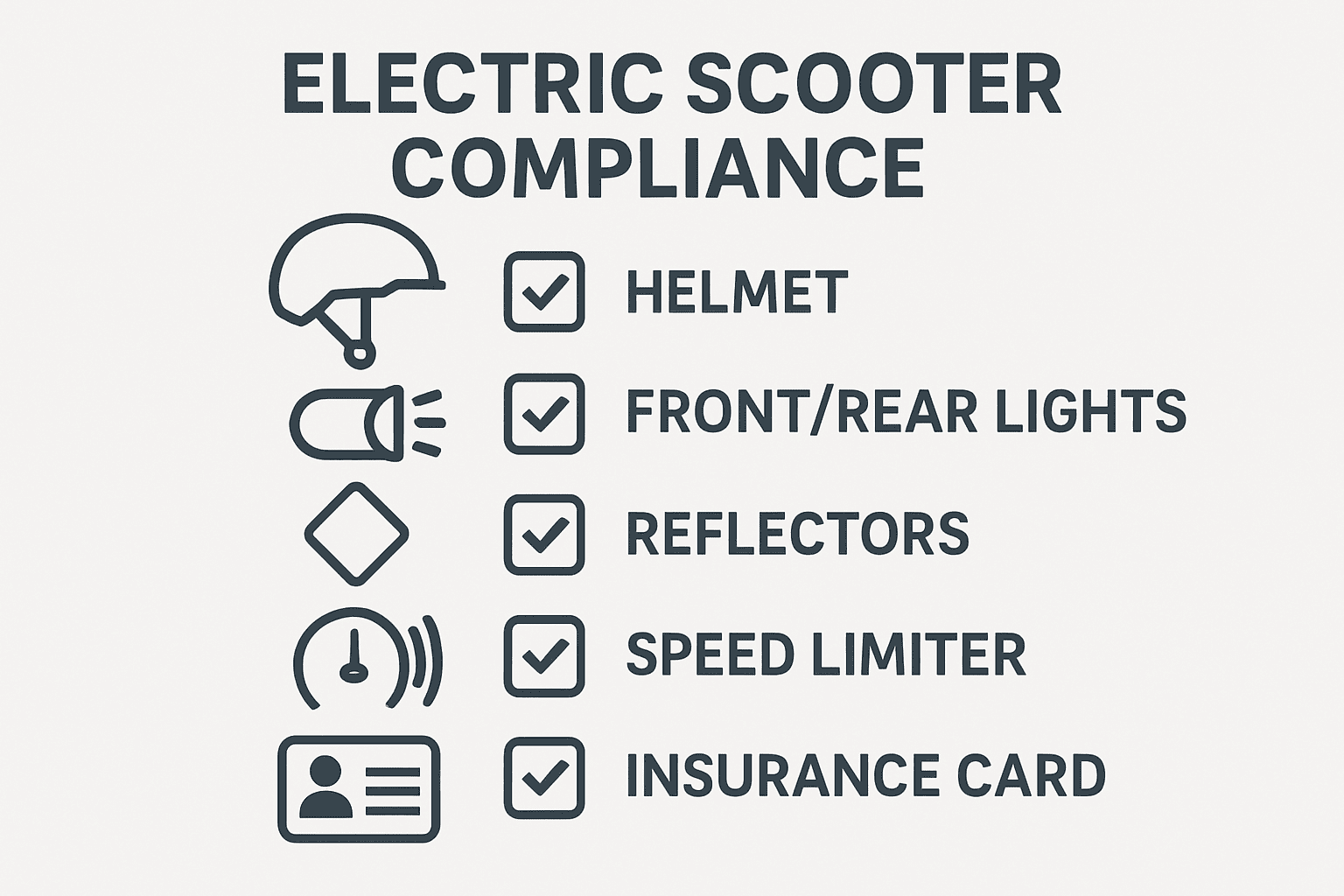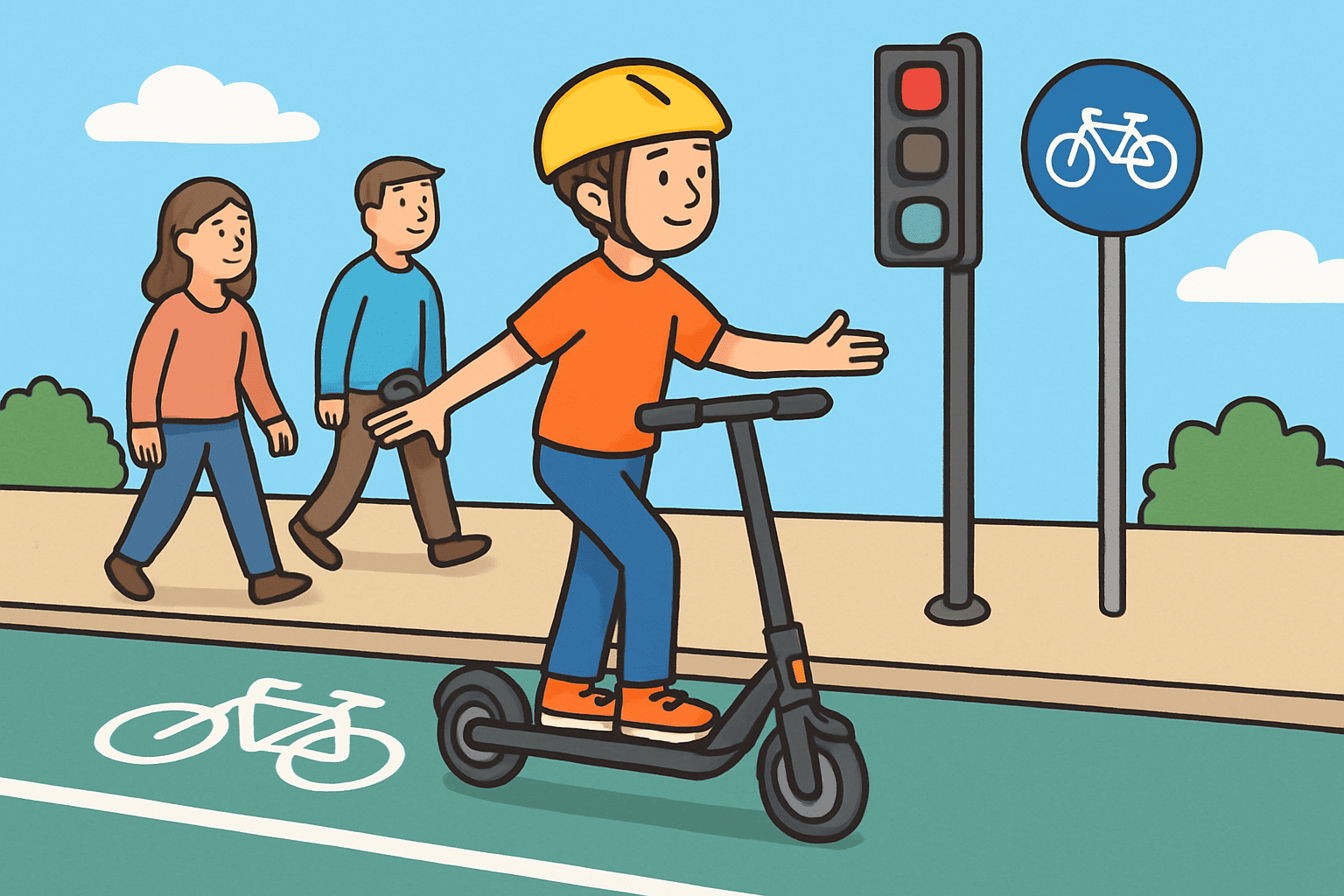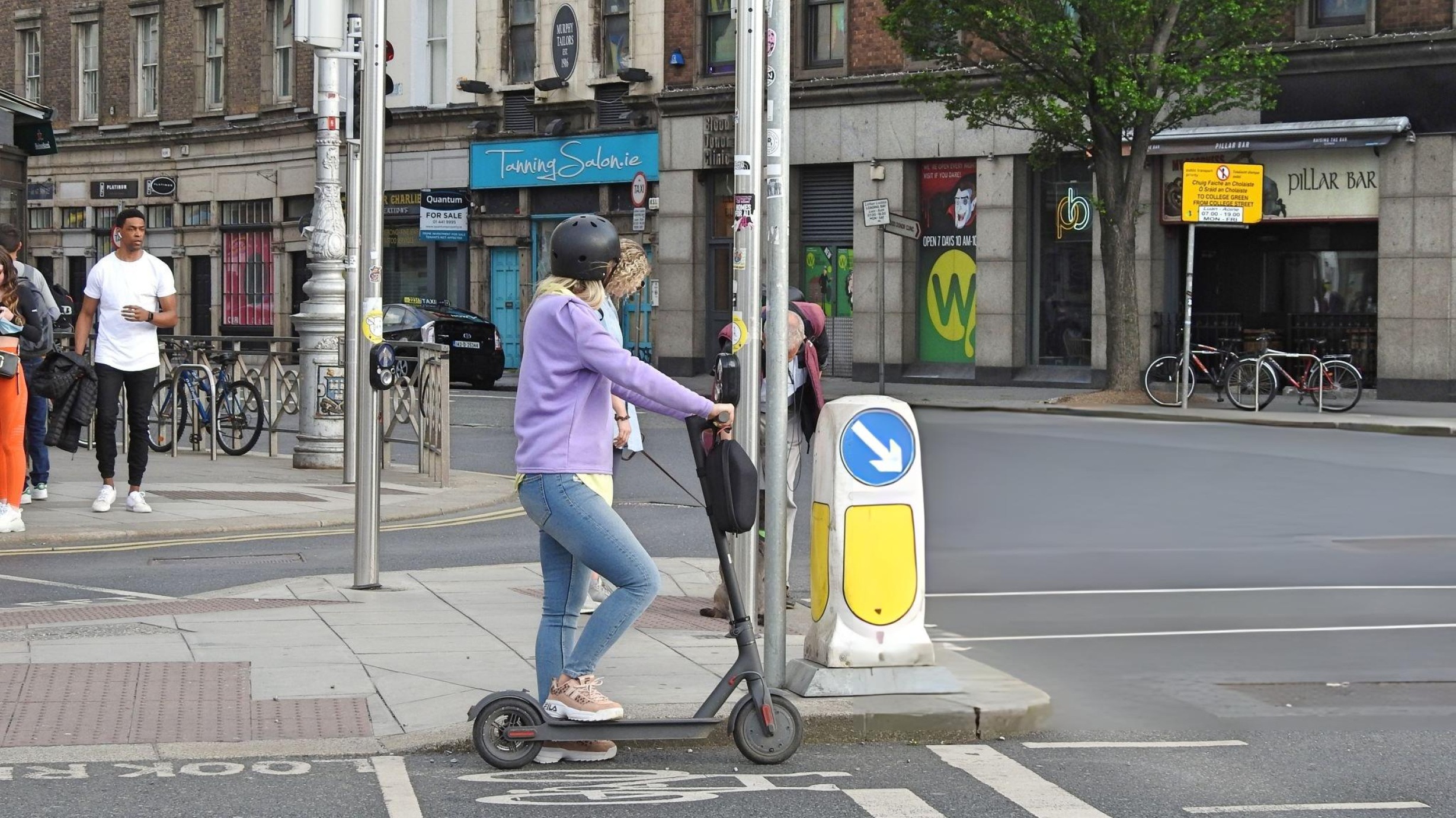The law on electric scooters is a hot topic of debate: are e-scooters legal, and are you allowed to ride an electric scooter throughout your city? In fact, e-scooter law varies greatly from country to country and most of the time from city to city as well. Some cities gladly welcome such vehicles, while others have stringent legal restrictions or even total bans on having these e-scooters in use. Some of the electric scooter regulations include speed limits, helmet rules, distance restrictions, and requirements for where to ride them and whether a license is required. So, what is your local law on scooters? Read on and see whether it’s street legal or not before you ride.
Why Laws About Electric Scooters Exist
Electric scooters are an emerging form of urban mobility today; hence, their increasing rates of usage have exposed new challenges, especially in dense city settings. The law doesn’t aim to restrain this innovative trend, but rather to ensure e-scooter riders use their vehicles with consideration for overall public safety, infrastructure, and urban design objectives.
Public Safety Promotion
E-scooters often share space with pedestrians, bicycle riders, and vehicles, creating potential safety hazards and increasing injury risks. Freedom from any laws would see such riders operating at unsafe speeds, using scooters on crowded sidewalks, or going helmetless, posing risks to themselves and others. Regulations establish clear guidelines that reduce these risks and promote responsible use.
Urban Infrastructure Management
Urban areas are lagging behind in developing needed e-scooter exclusive lanes or designated parking solutions. Abandoned scooters on sidewalks have been a common thing for cities as they block paths, causing accessibility challenges in their wake. Laws help manage how and where scooters are parked or stored, improving walkability and urban beauty.
Ensuring Accountability
Unlike registered vehicles or bicycles, many e-scooters (especially rental ones) lack identification systems, making them difficult to trace. Age limits can be established by the legal framework, licensing should be done, and, in many cases, mandatory insurance would promote compliance and responsibility.
Sustainable Transportation Goal
Often, electric scooters are marketed as environmentally friendly alternatives to cars. .
However, if left unregulated and used improperly, such as for very short, unnecessary trips or through inappropriate charging practices, they may reduce or even negate their potential environmental advantages. Laws can address concerns by facilitating public transport integration and other sustainability objectives.
City-Level Specific Regulations
Local government at the city level governs local scooter operations. Some U.S. cities permit scooter use in bike lanes, while others deter it altogether in any public space, including the roads. There are also local rules for helmet use, no-ride zones, or speed limits. As a rule of thumb, always seek out the information from your city’s transport authorities, so you know it is safe and legal to ride.
Here is the detailed legal status for e-scooters in different regions:
London (UK): Rentals legal in trials, max ~12.5 mph, geo-fenced; private e-scooters illegal on public roads. Fines: up to £300, points, impound. Strict in central areas.
Paris (France): Rentals allowed, ~20–25 km/h (slower in busy zones), strict parking rules; private scooters legal with age/traffic limits. Fines: €135–€1,500. Strict.
Berlin (Germany): Rentals & private legal, max ~20–25 km/h, must meet tech rules. Fines for speeding/illegal riding. Moderate enforcement.
NYC (USA): Rentals limited, private use allowed but restricted; proposed cap ~15 mph. Fines vary ($50–$300). Enforcement uneven.
Sydney/NSW (Australia): Rentals in trial zones only, strict caps; private use illegal on public land. Heavy fines & seizure. Strict in trials.
Rental vs Private: Rentals often legal under regulated trials (geo-fenced, speed-limited); private scooters often restricted or banned on public roads.
Where Are Electric Scooters Legal? (By Region)
Are electric scooters street legal? The scene all across the globe is very much the same, notwithstanding some countries that have wholly accepted the environmental friendly transport. Some consider the scooter to be a menace to society and have imposed strict regulations, while others have gone to the extent of prohibiting it completely. Below are the specific rules on how e-scooters are regulated in some regions.
United States
In the United States, one could say that the law slightly varies from state to state, and in some cases also from city to city. Depending on the state, in general, scooters are allowed to share public space with traffic on streets that have speed limits of not more than 15 to 20 miles per hour. Riding in most states in the bike lane is permitted, but laws regarding helmets vary across states for those under 18. Now, sidewalk riding is prohibited in some cities, and on the other hand, some require E-scooters to have front and rear lights for nighttime riding.
United Kingdom
In the UK, it is illegal to use privately owned e-scooters on public roads or pavements. Only those rented through approved government pilot programs are allowed. Meanwhile, a private scooter can only be used on private property with the permission of the owner
Legal Differences Between Personal & Shared E-Scooters
Privately owned e-scooters are subject to a much stricter regime in most cities regarding lawfulness; for instance, rental e-scooters are allowed in trial zones by UK law, while personal scooters are prohibited from public roads. This difference matters since an infraction might also be applicable to users of personal e-scooters, even though rental users are complying properly.
European Union
Most EU countries demand e-scooters under certain restrictions. For example, most EU demand CE certification, a speed limit of 25km/hr, and a minimum age requirement. In some places, insurance is also obligatory. Riding on sidewalks is generally prohibited to protect pedestrians.
Asia (India, Singapore, Japan)
In India, the e-scooter is legal as long as it complies with speed and motor power specifications. Singapore has some of the world’s most stringent laws requiring registration, compliance with weight and speed restrictions, and safety inspections. Last March, Japan legalised low-speed scooters on public roads, given that the rider possesses a license and the scooter meets certain safety criteria.
Australia & New Zealand
Laws vary from state to state and region to region. In many locations, scooters are allowed to use bike lanes and shared paths but must adhere to helmet laws and speed limits, typically about 25 km/h. Always check local laws before riding.

Common Legal Requirements for E-Scooter Use
State and local laws will help you know about common legal requirements for using an e-scooter. It includes proper use of electric scooters for both riders and pedestrians in the public space, where they can keep them safe.
Speed and Motor Limits
The majority of the regions restrict the maximum speed of electric scooters to 25 km/h (15.5 mph) since this is also most of the time considered a safer speed for mixed-use in urban areas. In addition, there are numerous countries that only allow scooters with motors less than 500 watts, most especially when they’re used without registration or a license.
Helmets and Safety Gear
Helmet laws would differ, but in many countries and cities now, a helmet is required for minors, and some jurisdictions even require them for all riders. It is, after all, a good practice to wear reflective clothing, gloves, and elbow or knee pads, even if it is not mandated by law for their use.
Insurance and Registration
While Germany and several states in the US require insurance for e-scooters, this is especially true for the faster and more powerful models; they might also need registration. However, for models that run at lower speeds, exemptions are usually given.
Licensing and Age Limits
Most places have a minimum age set between 14 and 16 to ride legally. In some countries, a license or a learner’s license needs to be obtained to ride a scooter over certain speed or power limitations.

BOEScooter & Legal Compliance
Every BOEScooter is designed with a view to being legally compliant in every country of the world. All the models carry inbuilt speed limiters, CE certifications, and safety features like lights and reflectors. Whether you’re in Europe, Asia, or the U.S., with a BOEScooter, you can ride it without worrying about the local laws, performance or style issues.
Riding an Illegal Scooter: What Would Happen?
Much more disastrous implications follow the consequence of riding an electric scooter that is illegal according to the local laws. Generally, the legal penalties vary from country to country, but mostly the outcome includes payment of fines, confiscation of the electric scooter or even penalty points added to the driving record. Some countries may even void your insurance or give you a temporary suspension license, disqualifying you from using it, especially if the scooter is overpowered or restrictions are placed on its use.
Beyond the legal trouble, there is also a risk of injury from using a non-compliant scooter. Many models out there that don’t comply lack the most basic safety features, such as brake lights, reflectors or even a bell, which can be endangering in crowded environments. Under the same premise for safety standards, scooters could have a bad braking system or have an unstable frame, particularly at high speeds. This poses risks to both the riders and bystanders, especially in cities that may be crowded. Riding a well-equipped legal scooter means you are safe and able to avoid trouble.
Tips for Riding Legally & Responsibly
Though riding an electric scooter is more about fun and convenience, it should also be done in a legal and safe manner. So, make sure you know all the regulations in your area. The rules vary, sometimes city by city, so calling your local transport department or DMV would be helpful
Many places do allow an interim setup, even temporary bans, permitting scooter zoning in or out of certain specified areas. Monitoring such changes will prevent you from getting fined.
Always keep your speed limiter active and make sure that the lights, reflectors, and bell of your scooter are functional. Being on the right side of the law, who will ride responsibly, is going to save your life further down the road.

FAQs
Can I ride an e-scooter on the sidewalk?
That would vary from town to town and is usually disallowed for safety. So figure out the local legislation, since some countries do stringently enforce the sidewalk ban.
Do I need a license to use a scooter?
No, basically, usually low-speed scooters do not require a license, while a few might actually require special licensing for fast or high-powered ones.
Are e-scooters banned from bike lanes?
Yes, in most places, e-scooters are allowed to be ridden on bike lanes. However, riding on highways or major roads is generally prohibited.
What happens if I get caught riding above the speed limit on my scooter?
You may be fined and/or have your scooter confiscated. So always use the speed limit feature in order to keep it legal!
Can I legally operate the BOEScooter in my country?
The BOEScooter models are engineered to meet several international standards. You would thus need to refer to local regulations or consult BOEScooter support for confirmation.
Final Words
Most importantly, remember to check the regulations that apply to yours: there may well be a totally different set of electric scooter laws governing any given electric scooter for each city and country. Aspects such as scooter speed limits and the rider’s helmet being obligatory will go hand in hand with age restrictions and road access, the full suite of laws determining the safe and legal operation of such vehicles. Make sure the scooter you own conforms to these regulations.
